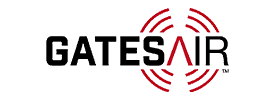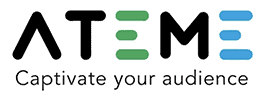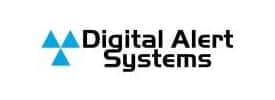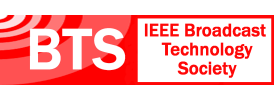- About
- Members
- Sponsors
- Subcommittees
- Technical Documents
- News
- Events
- Spotlight ATSC 3.0
- Contact Us
- Member Login
- Member Meetings
- Advanced Search
Search Site
Member Links
- About
- Members
- Sponsors
- Subcommittees
- Technical Documents
- News
- Events
- Spotlight ATSC 3.0
- Contact Us
- Member Login
- Member Meetings
- Advanced Search
Society of Broadcast Engineers Releases ATSC3 Specialist Certification
Posted on November 18, 2020 in ATSC News
The Society of Broadcast Engineers, in its continuing effort to advance its program of certification, has added a new Specialist Certification to its offerings: The ATSC3 Specialist. In addition to various certification levels that require a certain time of professional career experience and cover a broad knowledge base, the SBE offers several Specialist Certifications, each one focusing on a specific understanding of a technology. The SBE began its program of certification in 1975.
The new level of certification was developed by the Society of Broadcast Engineers Certification Committee, chaired by Ralph Hogan, CPBE, DRB, CBNE, with direct assistance from the Advanced Television Systems Committee. The first ATSC3 SBE Certification exams will be made available during the February 2021 SBE exam period. The application deadline to take those exams is Dec. 31, 2020. The initial idea to create the SBE ATSC3 Specialist Certification began in 2018. The SBE Certification Committee worked closely with key ATSC members for input on suitable information to include in the exam. The Certification Committee also worked with several SBE members with direct experience installing ATSC 3.0 systems. From this, a set of questions was created, beta tests were conducted, the questions were reviewed and adjusted and additional beta testing was held. The final question pool covers a mix of practical application and technology standards.
“The SBE is grateful to the ATSC for its help in assembling the exam question pool,” said SBE Certification Chair Ralph Hogan. “As is the practice in creating any level of SBE Certification, a group of subject matter experts is consulted.”
“I also extend my thanks to the ATSC members who helped in the exam development process. As the foremost experts on ATSC 3.0, their contributions were invaluable. I was also continually impressed by the SBE’s methodical exam development process, ensuring that the exam would fairly and accurately assess a candidate’s understanding of ATSC 3.0. Individuals who successfully pass the exam will have earned a truly meaningful certificate,” added Madeleine Noland, president of ATSC.
Like all SBE Certifications, the exam questions will continue an ongoing review process to ensure the information being covered is relevant and current. Certifications are valid for five years, and then must be renewed or advanced to a higher level.
On the announcement, SBE President Wayne Pecena, CPBE, 8-VSB, AMD, DRB, CBNE, said, “Certification is one of the foundation blocks of the SBE. Just as the 8-VSB and DRB Specialist Certifications covered new technologies when they were introduced, so does the ATSC3 Specialist Certification.”
The first SBE Specialist Certification was offered in 2005. The existing Specialist Certifications are the 8-VSB Specialist (8-VSB), AM Directional Specialist (AMD) and Digital Radio Broadcast Specialist (DRB). To apply for a specialist certification, an individual must currently hold certification on the Broadcast Engineer, Senior Broadcast Engineer, Professional Broadcast Engineer or Broadcast Networking Engineer Certification level. Exams must be completed within three hours and consist of 50 multiple-choice questions (two points each) and one essay question (20 points maximum). Examinees are provided one essay question to answer. Exams are pass/fail, and a score of 84 is a passing grade.
The Society of Broadcast Engineers (SBE), a non-profit, professional organization formed in 1964, is devoted to the advancement of all levels and types of broadcast engineering. Operating from our national headquarters in Indianapolis, Indiana, SBE is a chapter-based membership association with approximately 5,000 members and 114 local chapters nationwide.For more information about the SBE, contact:
John L. Poray, CAE, Executive Director
jporay@sbe.org
317-846-9000
or visit the SBE website, sbe.org.
About ATSC
The Advanced Television Systems Committee is defining the future of television with ATSC 3.0 next-generation broadcast standards. Founded in 1983, ATSC is an international, non-profit organization developing voluntary standards for digital television. ATSC’s 100-plus member organizations represent the broadcast, broadcast equipment, motion picture, consumer electronics, computer, cable, satellite and semiconductor industries.www.atsc.org
ATSC media contact:
Dave Arland
dave@arlandcom.com
317-701-0084
Posted in ATSC News
News Categories
News Archives
Subscribe
Subscribe to The Standard, our monthly newsletter. Learn More
Join ATSC
ATSC is a membership organization with both voting and observer categories. Voting members include corporations, nonprofit organizations, and government entities, and they participate actively in the work of ATSC. Observers are individuals or entities not eligible to be a voting member.
Subscribe to our Newsletter
Subscribe to The Standard, our monthly newsletter, to stay up-to-date with ATSC news and events around the world.
Site Links
Contact Us
Advanced Television Systems Committee, Inc.
1300 I Street NW, Suite 400E
Washington, DC 20005
Do you have questions about ATSC?
About ATSC
The Advanced Television Systems Committee, Inc., is an international, non-profit organization developing voluntary standards and recommended practices for digital terrestrial broadcasting. ATSC member organizations represent the broadcast, broadcast equipment, motion picture, consumer electronics, computer, cable, satellite, and semiconductor industries. ATSC also develops digital terrestrial broadcasting implementation strategies and supports educational activities on ATSC standards.
© 2025 ATSC


































